Differences between Condensing and Non-Condensing Tankless Water Heaters
There are two types of tankless water heaters available for Englewood homeowners, condensing and non-condensing models. They each have their own advantages, so it's important to understand the differences before making a decision. This article provides a comparison of condensing and non-condensing tankless water heaters, helping readers choose the one that suits their needs.

Tankless and tank water heaters
There are two primary types of water heaters: those with storage tanks and those without. Water heaters with storage tanks hold a significant amount of water and maintain its temperature constantly. On the other hand, tankless water heaters heat water as it is needed, using a heat exchanger. This method eliminates the need for a storage tank and conserves both energy and space.

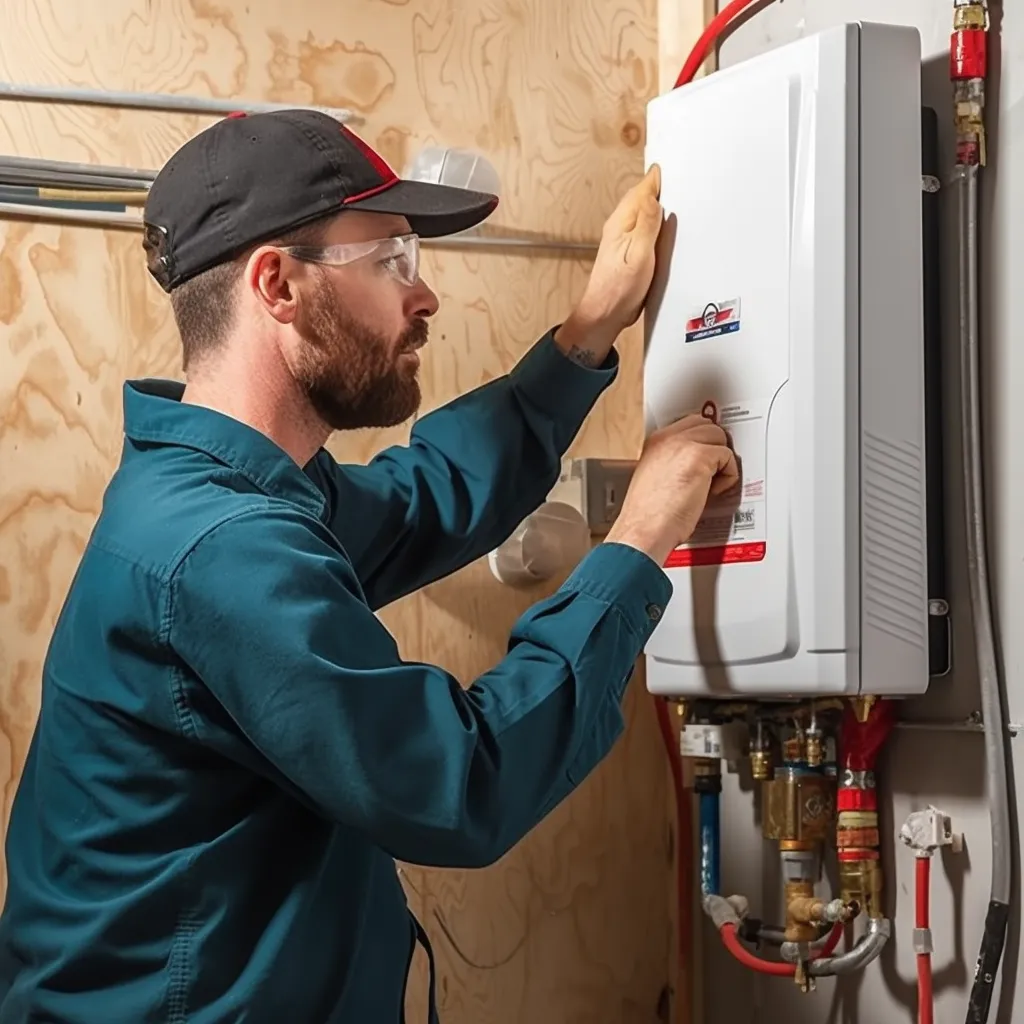
What is a condensing tankless water heater?
The condensing tankless water heater is a more advanced and efficient version of the traditional tankless water heater. It uses a smart system to capture and reuse wasted heat, effectively warming the water that comes in. This method maximizes efficiency and minimizes energy waste, leading to notable savings on your energy bill. Additionally, by decreasing energy usage, the condensing tankless water heater contributes to reducing your carbon footprint, making it an eco-friendly option.
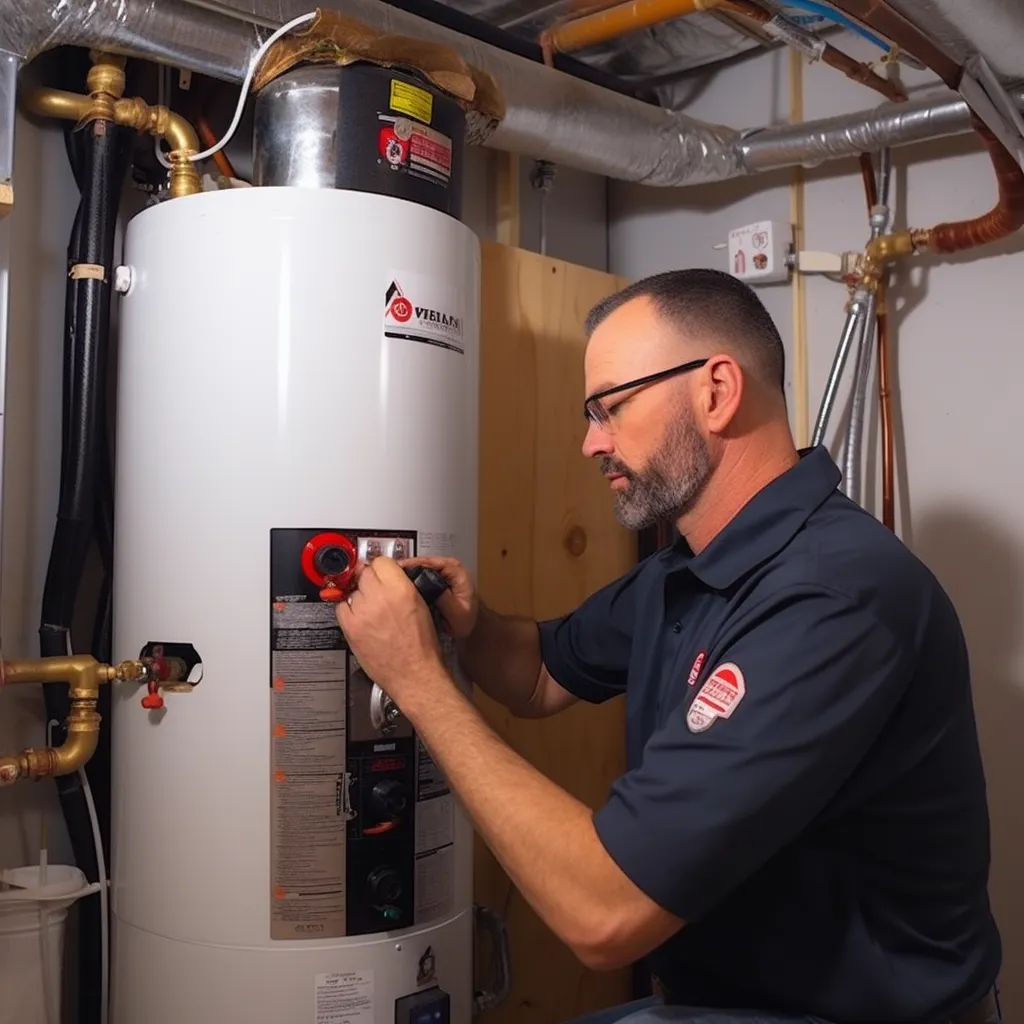
The differences between condensing and non-condensing tankless water heaters
Understanding the distinction between condensing and non-condensing models is crucial when considering tankless water heaters. These models differ in their approach to handling exhaust gases, with non-condensing models releasing these gases into the atmosphere, while condensing models cool them down until they condense into water vapor and are expelled. This difference plays a significant role in reducing energy costs efficiently.
Condensing models are more energy-efficient and efficient overall compared to non-condensing models, thanks to this process. While their upfront costs may be higher, they can lead to significant long-term savings by reducing energy expenses.
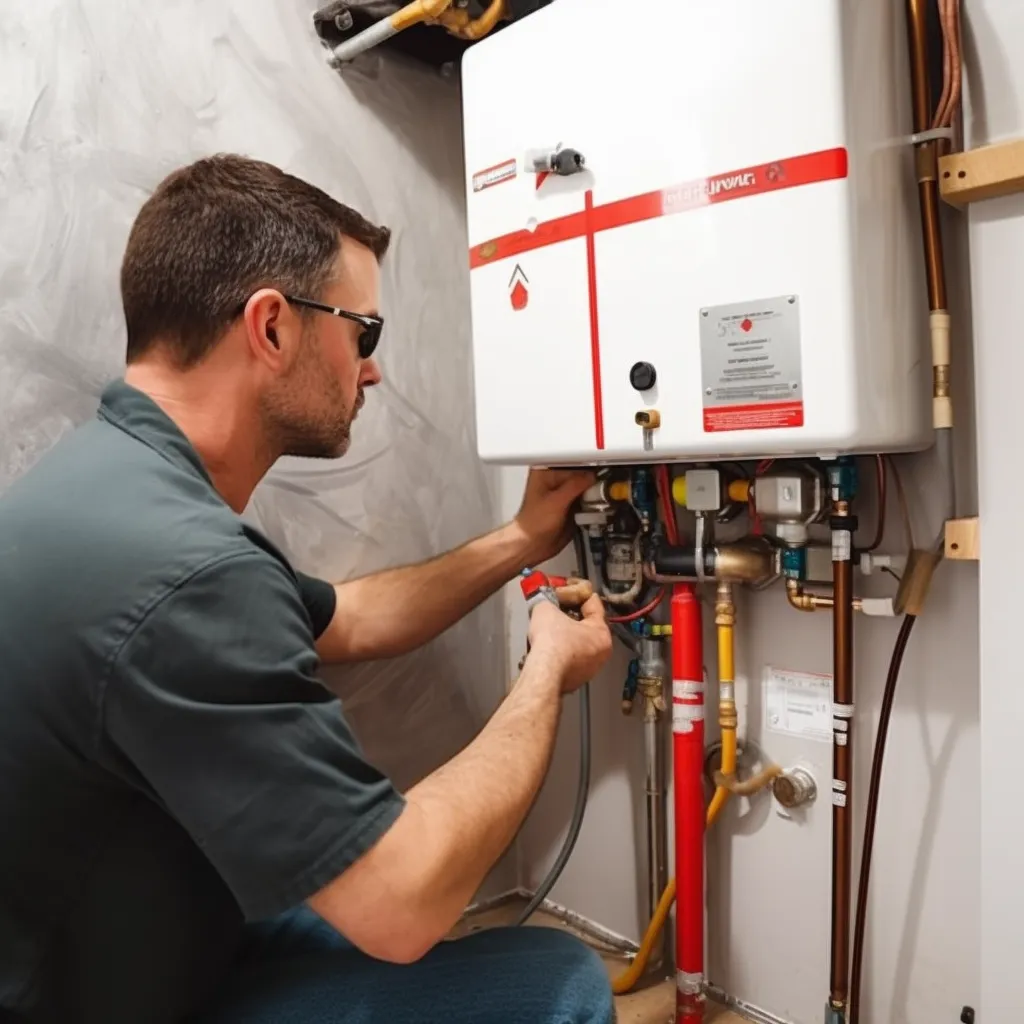
What are the advantages of a condensing tankless water heater?
There are several advantages that condensing tankless water heaters have over non-condensing water heaters:
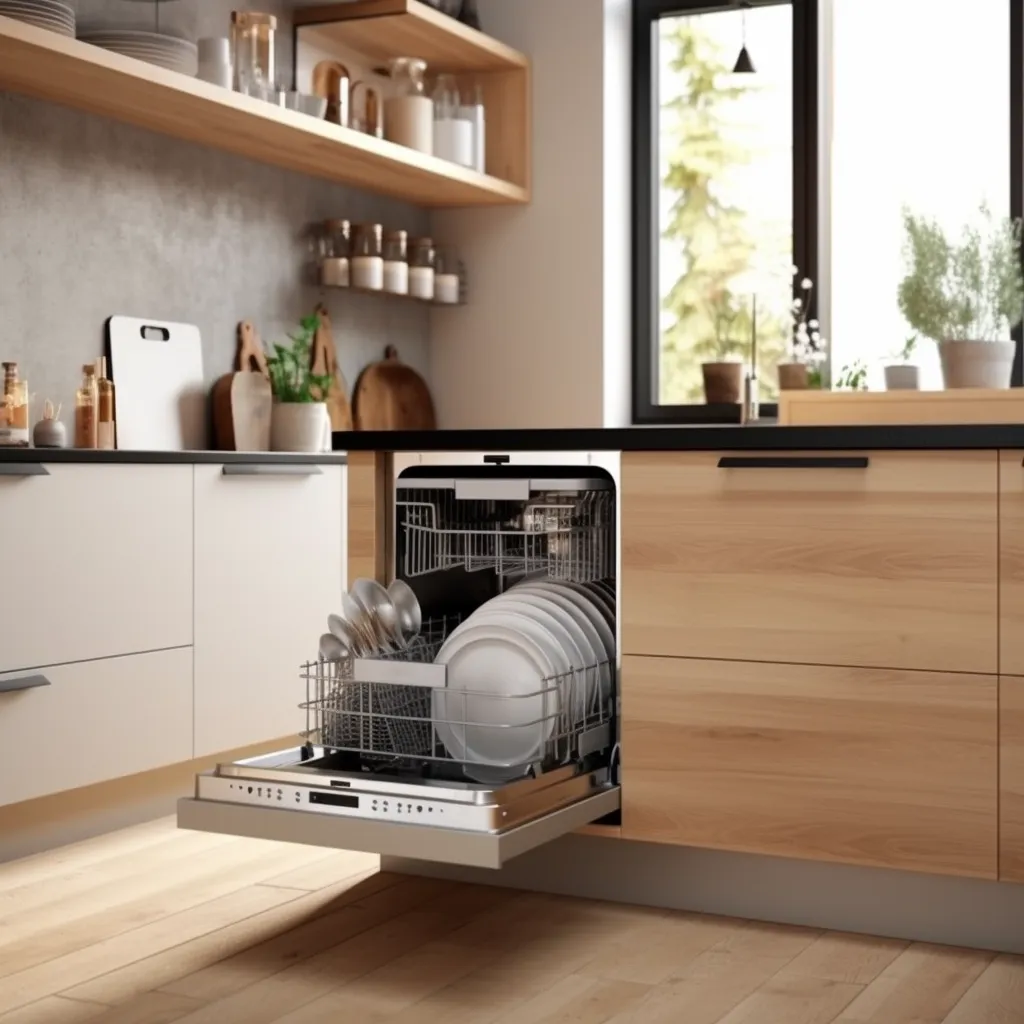
Higher efficiency is a well-known characteristic of condensing models, which can result in cost savings on utility bills. These models are able to extract more energy from the fuel source by effectively utilizing waste heat from exhaust gases, thus improving efficiency.
Condensing water heaters are more environmentally friendly as they produce fewer greenhouse gas emissions. Their reduced emissions help lessen the environmental impact and promote a greener Englewood household.
The lifespan of condensing water heaters is generally longer than that of non-condensing models. Their simpler design with fewer components decreases the chances of mechanical failures and improves overall reliability. As a result, they can provide a steady supply of hot water for a longer period of time.
Disadvantages of a condensing tankless water heaters
The disadvantages of condensing tankless water heaters:
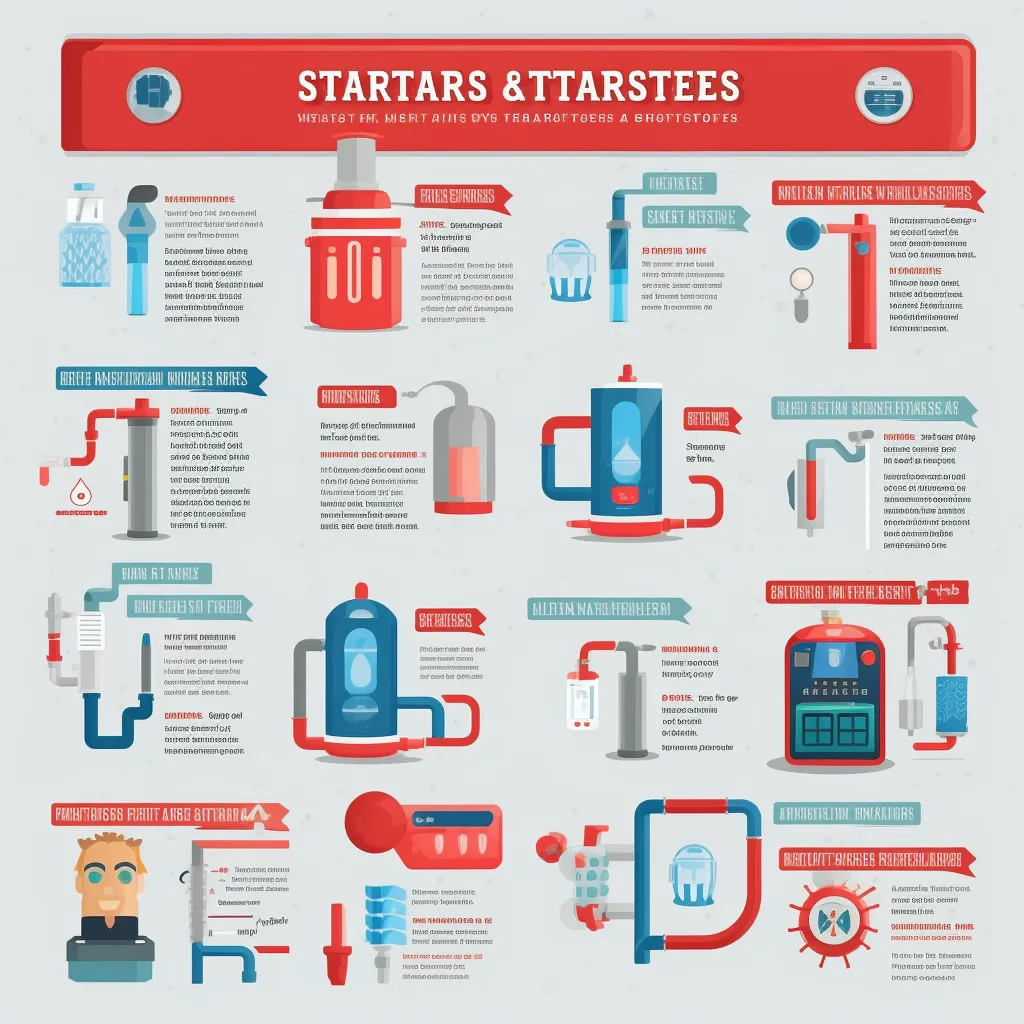
When comparing water heater models, it is important to note that condensing models typically have a higher price than non-condensing ones. However, it is important to weigh this upfront cost against the potential long-term savings in terms of energy efficiency and utility bills.
It is important to mention that condensing models might need more maintenance and may have more complex installation because of the additional needs for venting and drainage systems.
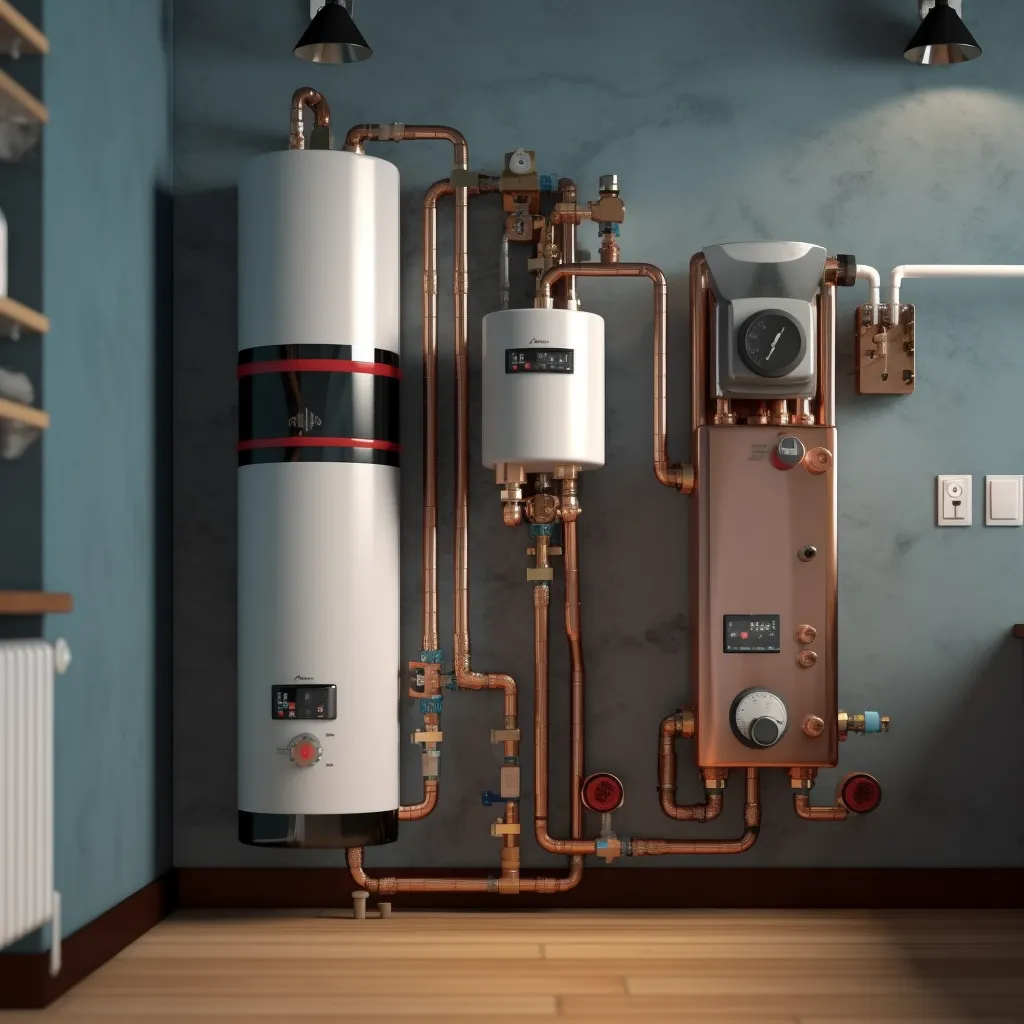

Do condensing tankless water heaters have high energy efficiency?
An intelligent and eco-friendly solution for heating water is offered by condensing tankless water heaters. They have a high efficiency, reaching up to 96%, which allows them to effectively capture and utilize lost heat during the combustion process. This energy conservation leads to significant savings over time, as there is no wasteful heating of unnecessary water. Check out our page to know if it is more beneficial to repair or replace a water heater.
In addition, tankless water heaters that condense operate on-demand, which means they only heat water when it is necessary. This further decreases costs and decreases the impact on the environment by avoiding unnecessary energy usage.
Englewood homeowners can benefit from the efficiency of a condensing tankless water heater, save money, and help create a more environmentally friendly and sustainable environment.

Are tankless water heaters that are non condensing energy-efficient?
For individuals who prioritize sustainability and cost-effectiveness in water heating, non-condensing tankless water heaters are worth considering. Although they may not achieve the same level of energy efficiency as condensing models, they still offer significant decreases in energy consumption and expenses when compared to conventional tank water heaters.
Although they don't capture and use waste heat like condensing models, non-condensing tankless water heaters still offer an efficient and environmentally friendly option for traditional water heaters. Compared to tank-based systems, they provide better energy efficiency and cost savings, making them a popular choice for households.
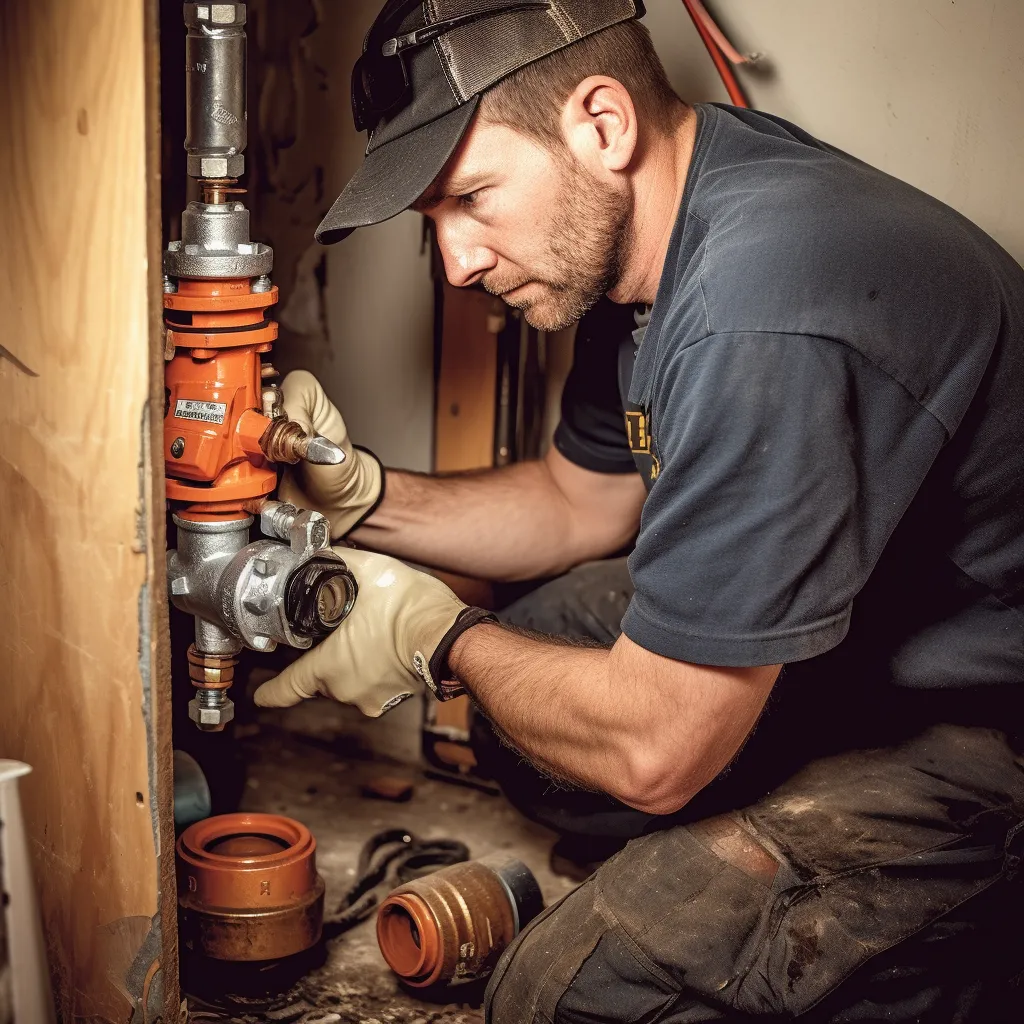
What is the price to buy and install a condensing tankless water heater?
Considering the total expenses is essential when it comes to condensing tankless water heaters, as they provide significant energy savings and improved efficiency. The price can be influenced by factors like the size of the house, the specific model, and the brand. Furthermore, it is important to consider the complexity of installation. To ensure you make an informed decision and choose the most suitable option for your requirements, it is advisable to seek guidance from a reliable professional. Their knowledge and expertise will assist you in selecting the appropriate condensing tankless water heater for your home.
Although the upfront expense might be more, several Englewood homeowners discover that the long-term advantages of a condensing tankless water heater surpass the initial investment. The energy conservation and enhanced efficiency can lead to substantial financial savings over time, making it a valuable option for individuals searching for an efficient and environmentally friendly water heating solution.
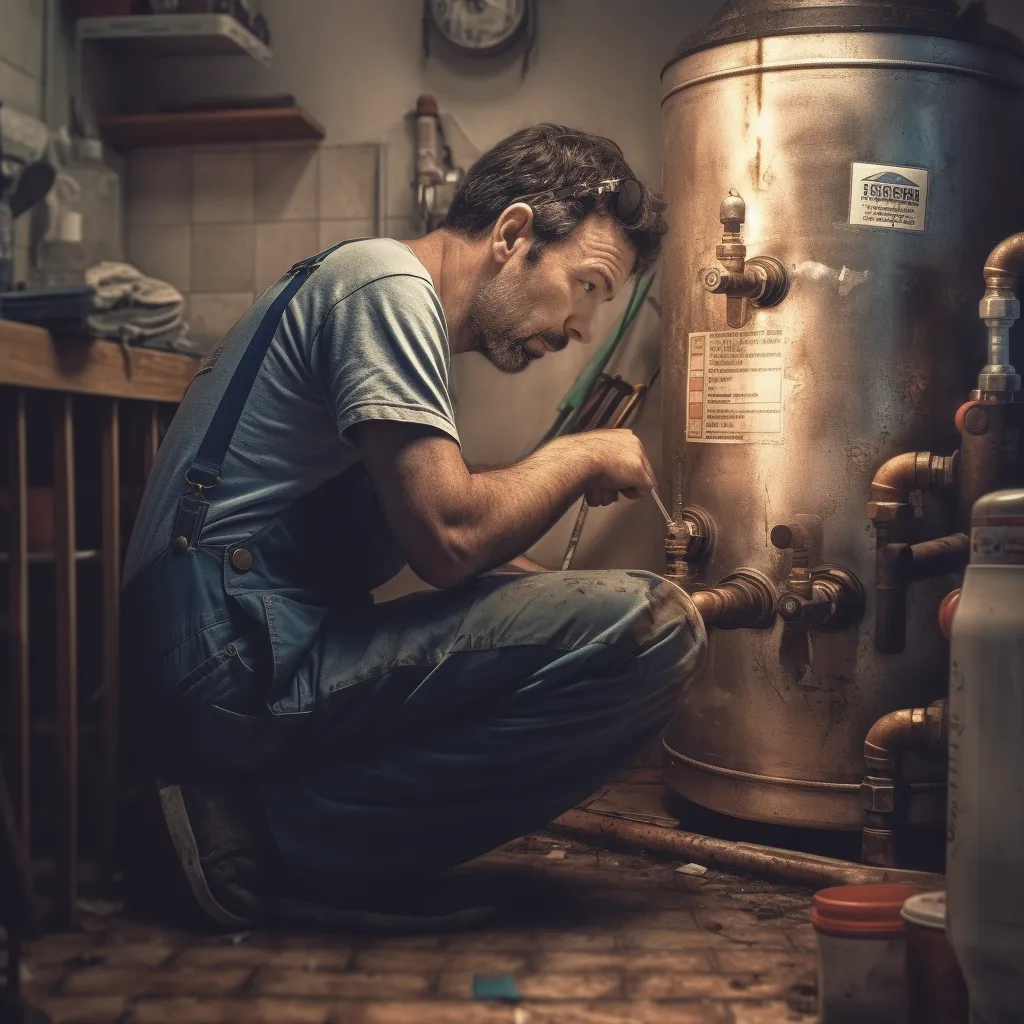
What is the price to buy and install a non-condensing tankless water heater?
Tankless water heaters that are not condensing are offered by reputable brands in a range of sizes and usually have a price range of $1,000 to $3,000. Although they require an initial investment, these water heaters are known for their durability and can supply unlimited hot water for as long as twenty years. Furthermore, their compact and stylish design allows them to take up minimal space and reduce clutter in your home.
Maintenance requirements of condensing tankless water heaters?
Here are some of the maintenance requirements for condensing tankless water heaters:
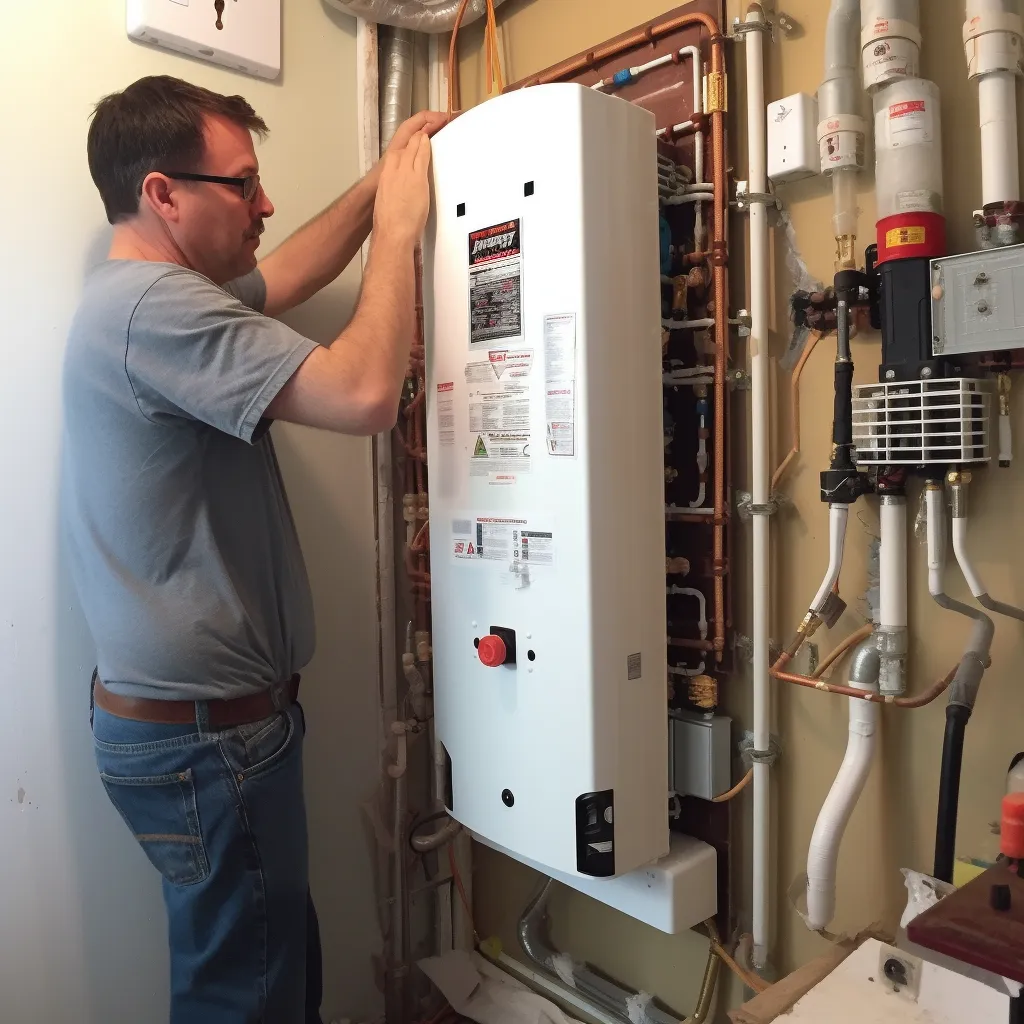
Inspect for any leaks or possible problems.
Perform maintenance on the heat exchanger and burner to ensure cleanliness.
Inspecting and replacing filters is important for maintaining efficiency.
Test water pressure and temperature to ensure optimal performance.
Make sure the venting system is clear of any obstructions.
Regularly flush the system to eliminate the accumulation of sediment.
Inspect the cleanliness of the air filter.
It is important to conduct regular maintenance on condensing tankless water heaters to avoid problems like increased energy bills, reduced efficiency, and possible damage. To keep your water heater in the best possible condition, it is advisable to schedule regular professional maintenance checks. By being proactive about maintenance, you can save time and money in the future while ensuring that your water heater operates efficiently and effectively.
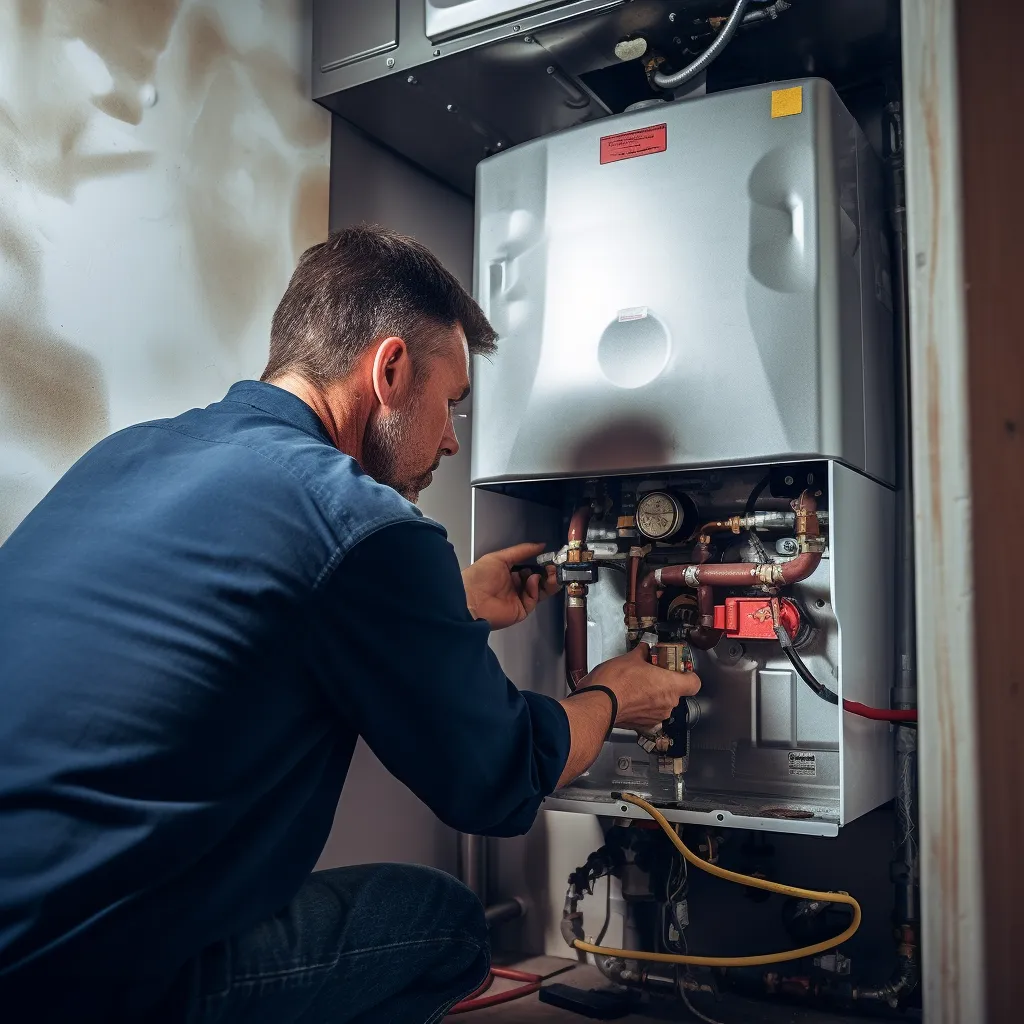
What are the maintenance requirements for non condensing tankless water heaters?
Maintenance requirements for non-condensing tankless water heaters are comparable to those of condensing units. Consistent maintenance is crucial for optimal unit performance and preventing potential problems. Keep following our website to know more about maintenance.
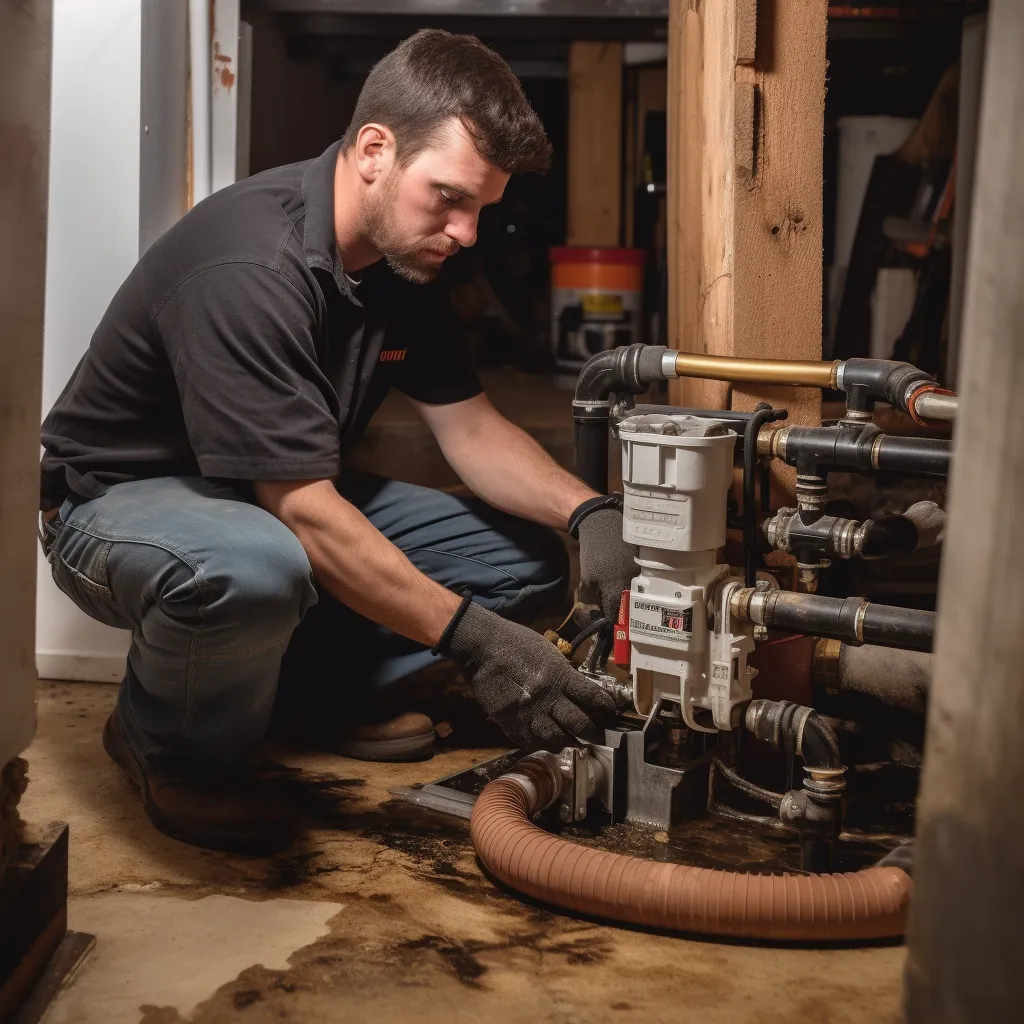
Flush the system on a regular basis to eliminate mineral buildup and debris that may impact its performance.
Regularly check the unit filters and replace them as necessary to ensure proper flow and prevent clogging.
Remove any buildup that can impact efficiency and heat transfer by cleaning the heat exchanger and burner.
Examine the system for any malfunctions or leaks and take necessary action immediately to avoid additional harm.
Check that the water pressure and temperature are within the suggested range to ensure the best possible performance.
Maintain proper airflow and prevent ventilation issues by ensuring that the vents are clear of any debris.
Considerations when deciding between a non-condensing and condensing tankless water heater
When deciding between a non-condensing and a condensing tankless water heater, it is crucial to take into account various factors:
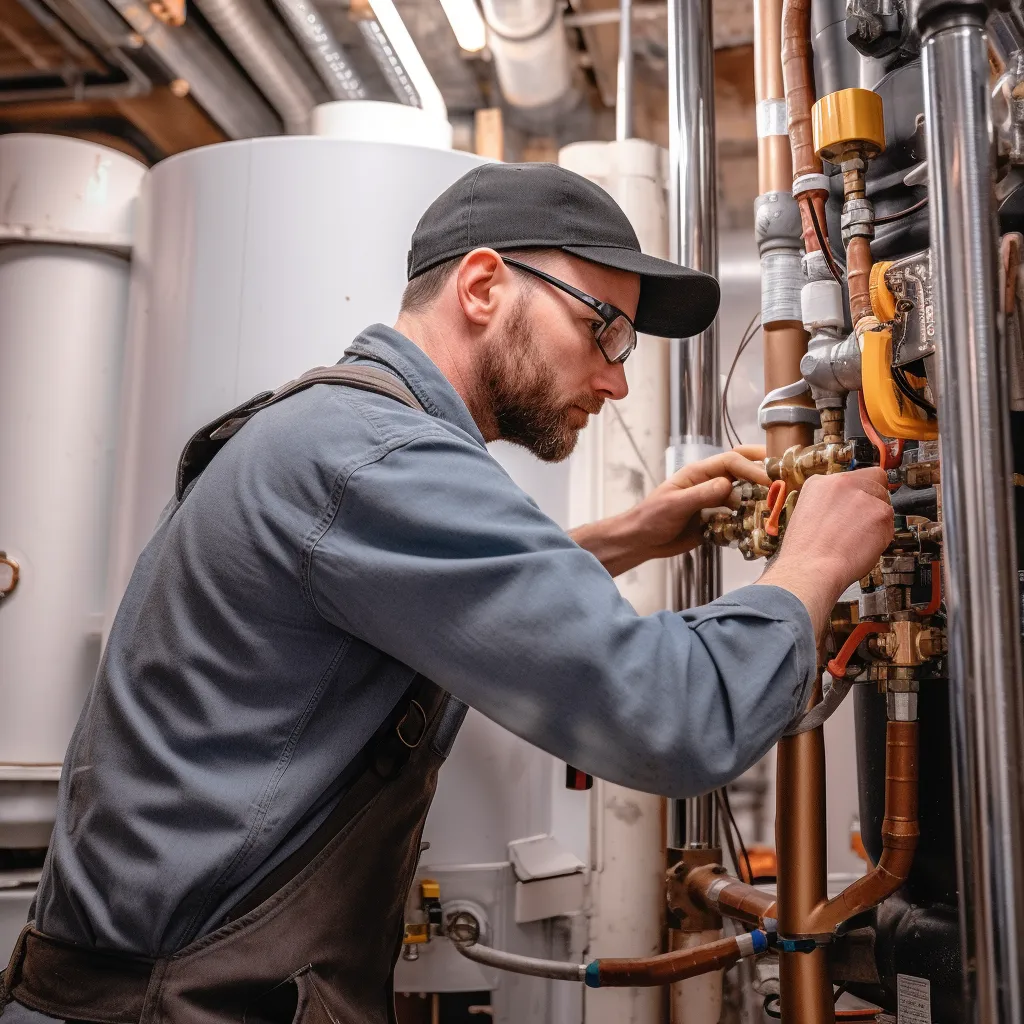
Condensing water heaters are a better option if you have limited space as they are typically less bulky compared to non-condensing units.
The installation of these units is more complex and can raise the overall cost. Non-condensing units provide a simpler and more affordable installation.
When deciding, take into account your maintenance preferences as non-condensing tankless water heaters need maintenance more often than condensing models.
Opt for a condensing water heater if energy efficiency is important to you, as it has the advantage of using less energy, resulting in long-term utility bill savings.
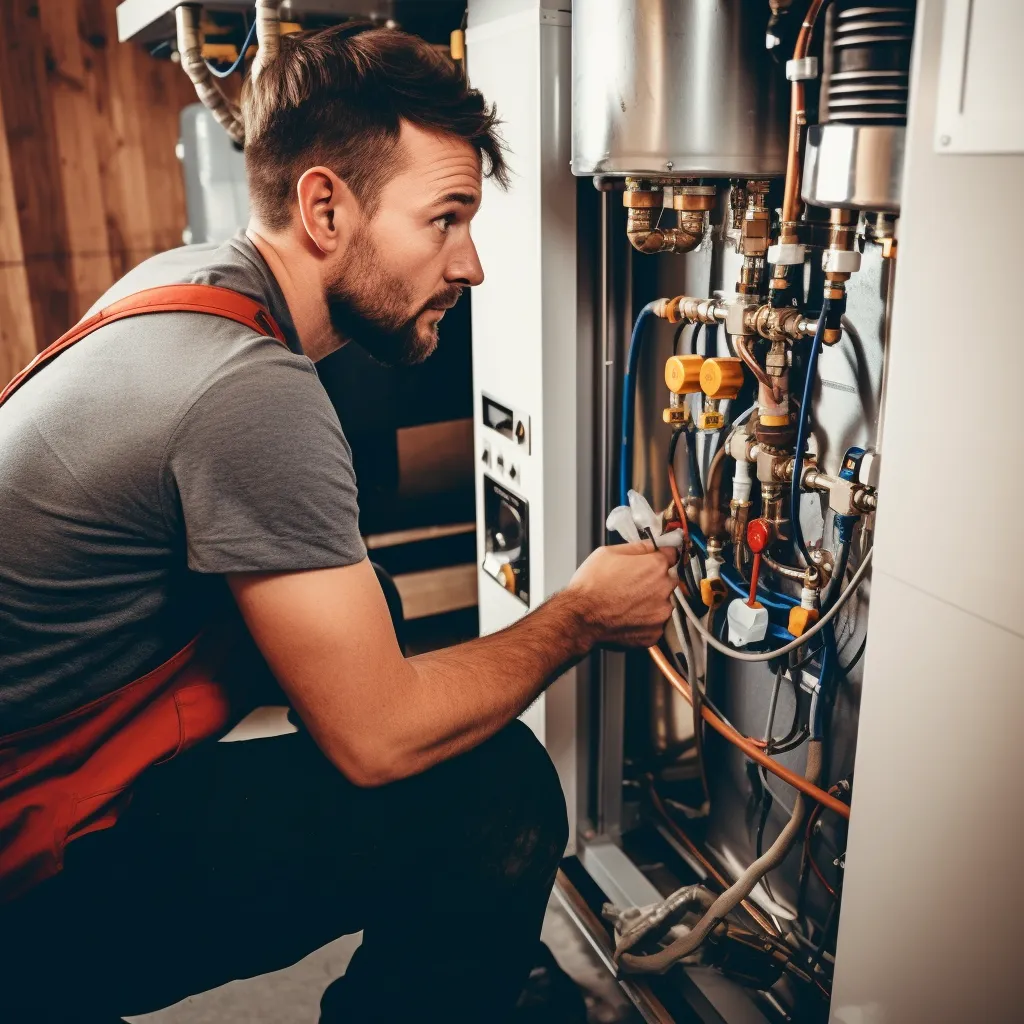
Be sure to research condensing v non-condensing tankless water heaters

Carefully examining the pros and cons of different types, such as condensing or non-condensing units, is crucial to finding the ideal tankless water heater for your home. While non-condensing options may seem more affordable, it's important to consider that they can waste energy and require more maintenance. On the other hand, condensing tankless water heaters are more cost-effective and can help reduce utility bills. Taking the time to compare different options and choosing the optimal water heater type will ensure consistent hot water availability and energy savings.
It's important to stress that choosing the right type of tankless water heater is a personal decision that requires consulting a licensed professional who has a thorough understanding of your home's specific needs. With their knowledge, they can offer valuable advice to help you make an informed decision that meets your Englewood home's requirements.
Contact Us
GET IN FULL TOUCH
PHONE: 941-307-7515
EMAIL:
david@waterheaterenglewood.com
David's Plumbing
Englewood, FL 34224
